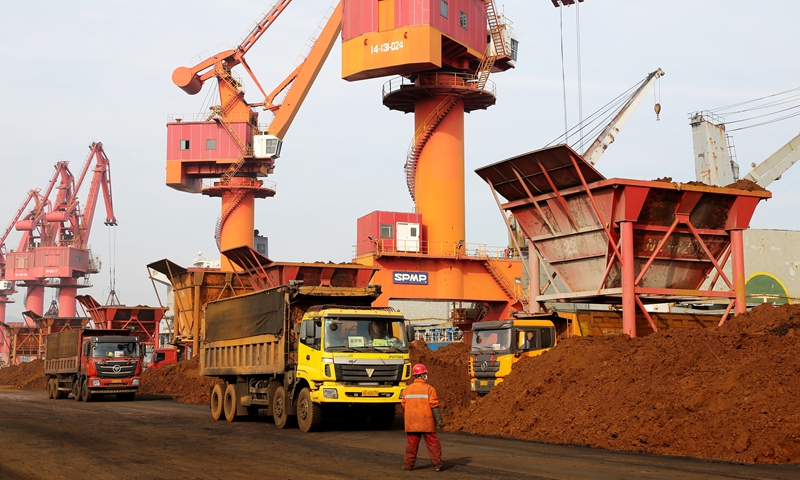Australian iron ore can’t prop up souring economic ties with Beijing
Source: Global Times Published: 2020/7/27 20:54:22

Photo:VCG
Agriculture is just one of a number of Australian industries worried about the impact of the tensions with China and seeking to continue normal business cooperation with Chinese companies.
Yet Canberra has been making reckless and wonton political provocations against China in recent months on nearly all issues that touch its bottom line. The latest assault on China occurred last week when Canberra said it rejected China's territorial and maritime rights in the South China Sea.
With the China-Australia political standoff progressing, this is certainly not the right time to expect businesses on the two sides to continue their cooperation as nothing has happened.
We have noticed that some in Australia have been touting the iron ore industry as the country's trump card in trade with China since bilateral ties soured. They claim that Australia's iron ore exports to China are essentially untouchable due to China's reliance on Australian supplies.
It is true that there is a level of interdependence between China and Australia in the iron ore trade compared with the trade of other goods. Historical statistics show that in recent years, Australia exported more than half of the global iron ore supply, while China consumed more than half of all global iron ore exports.
But the iron ore industry, which is likely to be less affected by China-Australia tensions than other industries, cannot eliminate concerns about all other industries that may be subject to shockwaves. And each industry could involve tens of millions of employees and their families.
It is Canberra that provoked the fight by blindly following instruction from the US government, and banning Huawei's 5G.
While China's willingness to not politicize trade and economic activities won't change, damaged political relations are sure to affect trade and economic cooperation between countries. That is because business confidence, once hurt, is beyond the control of the authorities, regardless of whether or not the action is taken at the government level to discourage trade. It is normal for businesses to be risk-aversive as they hate uncertainties caused by worsening state-to-state ties.
Against the backdrop of Australia's continuous political provocations, it is nothing but fanciful to expect the Chinese side to make efforts to prevent deteriorating relations from spilling over into the trade area. Restraint on the political level would be a welcome move under the current circumstances.
As such, what the Australian business community really needs is good will from their government toward improving bilateral relations, rather than a call for non-politicized economic ties.
Newspaper headline: Australian iron ore can’t prop up souring trade ties
Posted in: GT VOICE